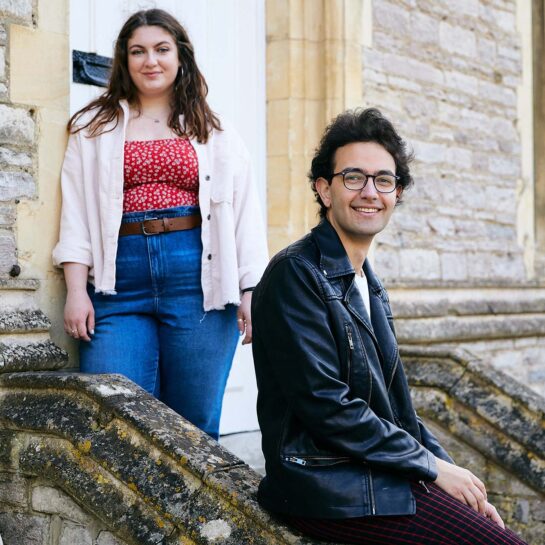Funding Support and Disabled Students' Allowance
Disabled Students' Allowance (DSA) is additional government funding for students with disabilities to help you to access the facilities and support you need to do your best in your studies.

Support for students with disabilities, medical conditions and specific learning difficulties comes from the Disabled Students' Allowances (DSAs).
If you are likely to require some form of support for your studies you should enquire about the Disabled Students' Allowances from the relevant awarding authority depending on where you currently live.
DSA Reforms - important update
The DSA system is in the process of being reformed. Under the new arrangements, students will have one supplier who has ownership of their end-to-end support for needs assessments, assistive technology and assistive technology training.
The transition to the new service arrangements is planned for February 2024. Existing DSA support arrangements will remain unchanged for continuing students.
As a result of this change to a new system, applications for DSA support are taking longer than usual to be processed and there are still long delays for students who applied for the 2023/24 academic year.
Students applying for DSA in academic year 2024/25 are advised to apply as normal; however, we recommend you start the process as early as possible because of the current processing delays.
If you have questions about your DSA application, whether you are a current student or applicant, please contact our Disability and Dyslexia Service on disability@chi.ac.uk.
For more information please see the Student Loans Company page: SLC: DSA reforms - important update
To apply for Disabled Students' Allowance:
- In England apply to Student Finance England. You can apply at the same time as making your online UCAS application.
- In Wales apply to Student Finance Wales.
- In Scotland apply to the Student Awards Agency for Scotland (SAAS) for any course.
- In Northern Ireland apply to your regional Education Authority.
These allowances are not income assessed, age related or affected by other eligibility benefits, and will not affect any of your existing benefits. They are available for full-time students, and part-time students following at least 25% of a full-time course, and available for both undergraduate and post-graduate courses in most cases.
This funding goes directly to the you, and not to your institution. Student Finance England also provides a free booklet ‘Extra Help, Disabled Students’ Allowances’ explaining this financial support in higher education. They will require medical evidence of your disability from a medical authority. If you have a specific learning difficulty, such as dyslexia, they will require an assessment report from a suitably qualified assessor.
What Funding is There?
How you may use your support funding
The allowances can pay for a range of support for your studies. The support comes in four main categories: specialist equipment allowance, non-medical helpers allowance, general Disabled Students’ Allowances and extra transport costs.
- Equipment allowance may cover equipment you need for your studies because of your disability. Examples of equipment it might supply includes: computer equipment, specialist software, digital recorders to record lectures, adapted keyboards and so on.
- Non-medical helpers allowance can pay for Dyslexia Tuition, Mental Health Mentoring, sign language interpreters and more.
- General allowance covers any extra expenditure you might have that is directly related to your disability, including extra books, photocopying and so on.
- Extra transport costs cover any extra travelling expenses caused by your disability if not already covered by existing benefits (e.g. Mobility component of DLA or PIP).
Assessment
Showing you are eligible for funding
In order to assess your appropriate support needs, Student Finance may request and fund an Assistive Technology and Needs Assessment at a national access centre.
This assessment establishes the kind of equipment and human support a student will need during their course. Any equipment provided will become the property and responsibility of the student. Student Finance will normally pay for insurance and maintenance for the duration of your course.